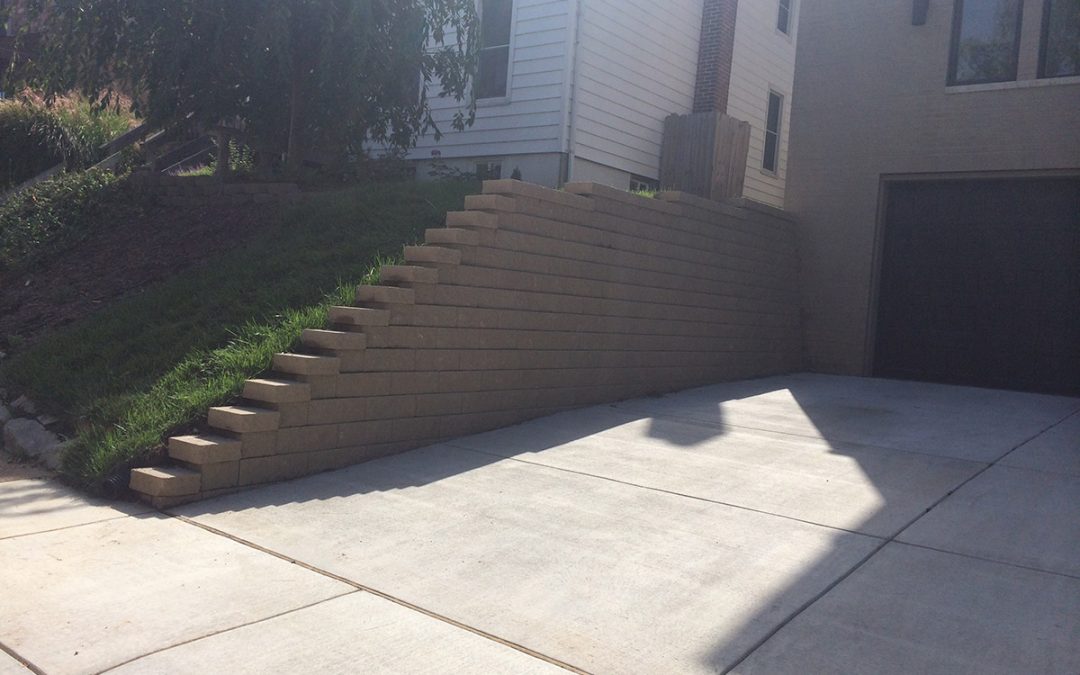You are looking at your home in all its homeliness and just think to yourself, “This house is the best house in the world, and nothing can possibly destroy it.”
Well, not so fast. There is a secret menace that lurks in the wind and water that is plotting to destroy your home.
This villain’s name? Soil erosion, and it can wipe your home off the face of the earth in a matter of minutes.
But how does soil erosion work its horrible magic? When torrential rain comes falling, it lands on the ground, right? Well, when there is a slope in your yard, that water goes down that slope, taking soil along with it, which can cause your abode to be flooded with water, causing thousands in damage to your home.
But do not fear, as there are many things you can do to keep your house safe. One of the most effective of these is the use of a retaining wall to keep that soil from being swept away.
But what is a retaining wall? Think of a retaining wall as a sort of dam for soil that keeps it where you want it to be. Most of the time, they are used to prevent water from sweeping soil and nutrients down a slope and careening towards your house, causing severe damage to your home. Essentially, they are a simple way to prevent flash flooding that can wreak havoc on your house.
They can be made of just about anything that is strong enough to keep soil at bay, so anything from simple bricks to large rocks is fair game to make a retaining wall with.
But retaining walls do not just keep soil from moving. A good retaining wall needs to satisfy the following requirements:
It can hold soil in place
It can drain away water and channel it properly
If your retaining wall satisfies both, your defenses are nice and strong, and you can rest assured that your house is safe. They can also serve a decorative purpose as they can be used to create multiple terraces on which you can grow a garden to give yourself another layer of protection. If you are still anxious after using these techniques, you can use other methods like natural barriers to keep water away from your home.
So, retaining walls do sound like a good idea, but should you build your own retaining walls? It can be done given the right amount of time and lots of research, but you should seriously consider what is at stake: your own home. An improperly built retaining wall can make the problem worse than it already is and lead to severe damage, particularly to your basement and foundation.
It is a much better idea to enlist the services of a respectable contractor like Fritz Stoneworks. Contact them at 636-861-1530 to enlist their services to help you keep your home safe from soil erosion and its horrific effects.

